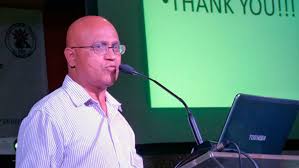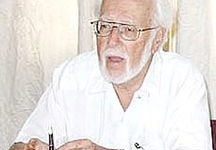The Americans cannot be bystanders in our issues with Exxon
BY: GHK
I refer to the caption “What Exxon is doing with Payara is what it did to Trotman in 2016 -Chris Ram” (KN August 19). This is my take on a position advanced by the ubiquitous commentator.
In my own words this is what I understood was Mr. Ram’s position. The Americans were influential in our draining quest for electoral democracy. I agree. They must now bring similar interest and energy in our endeavors to move Exxon to get a new deal, a fair deal that is a square deal. That would be welcomed. After all, it is the fabled American Way.
As I envision this, the thinking is now that the first stirrings of electoral democracy have registered, my fellow Americans must seamlessly realign presence and weight into our pursuits-indeed, our labors-for oil democracy. Ditto for the B &C & E plenipotentiaries that did so much for so few so recently right here. They must neither be absent nor silent now. It cannot be that that is none of our business; if elections were, then everything is on the table, with nothing looming larger than Exxon and us.
It is their business, all of them; well, at least, I am making it so, especially for Americans. I remind them what President Calvin Coolidge authoritatively said almost 100 years ago: “the business of America is business.” That speaks for itself and to the power of its inferences, implications, and insights. With that as context, I reach now into history and prior American involvements in the commercial sphere, including oil. I start randomly in 1953 and in faraway Iran. A leader named Mossadegh had bright ideas about his country’s oil ownership and management. That collided with the interests of the Anglo-Persian/Iranian Oil Company. He went down, the company stayed up and flourished. The Iranians have America and The UK to thank for the rest.
In 1954, it was the same story, only closer, as in Guatemala, where a nationalist (those are viewed as terroristic to the capitalistic) like Mossadegh, Jacobo Arbenz of Guatemala, had to suffer through paying dues under the boot of American influenced intervention to oust him from power for crimes against capitalism. His crime was resisting a company called United Fruit, now Chiquita Brands. And in 1972, ITT reached inside the Nixon White House to topple Allende in Chile. We know what followed afterwards.
My position is simple and stark. Where big business interests are involved (in jeopardy) political America rolls up its sleeves and gets down to business; the real business of regime change; the record attests.
Now I leave history and return to political Guyana. Political America and its Western allies weighed-in heavily in local affairs during our death struggles for electoral democracy. Mr. Ram recognized that. Now he is on record (and so am I) to urge that the same drive and energy must be manifested as this country’s new leaders wage an uphill battle for what I label ‘oil democracy.’ All we are asking for is a fair hearing and the fair shake of fair cash flow. What could be more American than that? We also need the fairness that comes from the freedom and space to review comprehensively the Payara project, that Field Development Plan.
I strongly believe that America can play a significant role (like the one noted in our elections) to influence ExxonMobil to do right by us. I call upon it to do so. It could work behind the scenes. It could make mediatory and conciliatory pronouncements in public. I distance from any thinking that posits this is outside of its sphere of operations. That was not the case with ITT and United Fruit, for starters. In the instance of Guyana, America gets to play angels, by coming out on the side of the little guys and the good guys. That, too, is a hallmark of singular American ideals and nobility. I exhort that America be so for Guyana in its tussle with Exxon. Our leaders must lobby the US to lobby for us with Exxon; US heavyweights must bridge the gap.
Exxon has a virtual open line to the State Department and the White House; it is a two-way communication channel, and one which must be utilized for the benefit of Guyana. I close with something from 1953 with the then President of GM, Charlie Wilson, presenting this to the U.S. Congress: “I’ve always believed that what’s good for the country is good for General Motors, and vice versa.” And I recall where he reportedly said that the business of General Motors is the business of America. Whether he did or not, here is my point. Today, the new GM is ExxonMobil. Today, ExxonMobil interests and American interests (what is good for both) are inseparable. Today, Guyana needs both.
For all the above, I say that the Americans cannot be bystanders in our issues with Exxon. It must do its part and lean on this American icon. It has the required heft.






















